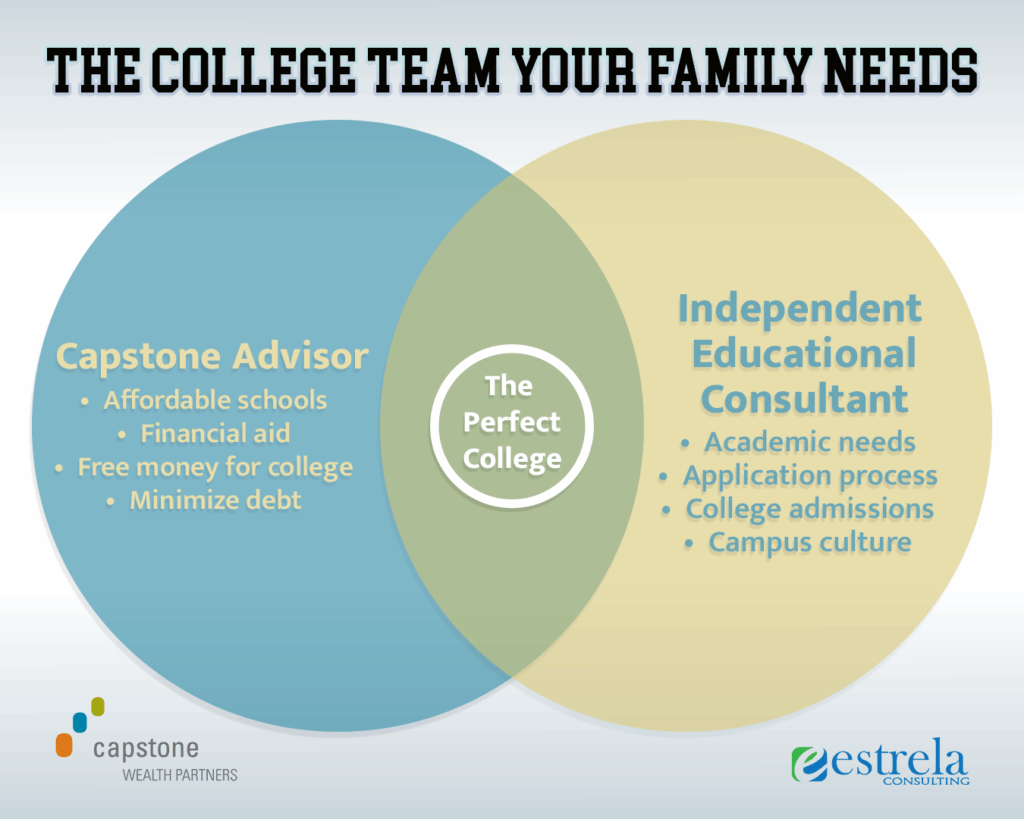Today, I’m featuring a guest post from Amber Gilsdorf, Director of College Planning at Estrela Consulting, LLC, a multi-consultant college planning firm based in Ohio. Amber supports and mentors all consultants on the team, plans and organizes all curriculum, and manages her own client load of students as they navigate the college search and selection process. She is also a former school-based counselor.
Thanks, Amber!
Navigating the journey to college—or finding the right school at any level—can feel overwhelming. The stakes are high, the options are vast, and the path forward is often unclear. That’s why an increasing number of families are turning to Independent Educational Consultants (IECs)—professionals who offer personalized guidance to help students find schools where they can truly flourish—academically, socially, emotionally, and financially.
What Is an Independent Educational Consultant?
An IEC is a trained expert who works closely with students and families to support them through the entire school or college planning and application process. But more than that, IECs seek to understand each student’s unique strengths, interests, challenges, and goals—helping them discover educational environments that will foster both achievement and well-being.
Working in Partnership with School Counselors
School-based counselors are dedicated, caring professionals who play a central role in students’ academic and personal development. In many schools, their commitment and care make an enormous difference in students’ lives.
However, the sheer volume of responsibilities and limited time can make it difficult to provide deeply individualized guidance on every student’s post-secondary journey. IECs do not replace school counselors—they complement them by offering additional time, resources, and support, especially for families seeking help outside of school hours or exploring specialized paths.
Who Uses Independent Educational Consultants?
It’s a common misconception that IECs are only for the wealthy. In fact, most families working with IECs are middle-income professionals, many with household incomes between $75,000 and $100,000, and whose children attend public schools. Many IECs offer flexible, hourly pricing to make services more accessible (as per annual survey conducted by IECA).
The value of an IEC isn’t in prestige or exclusivity—it’s in personalized, thoughtful guidance.
Do IECs Only Work with Straight-A Students?
Not at all. IECs support students of all academic backgrounds and aspirations—from Ivy League hopefuls to students exploring gap years, community college, special needs programs, or therapeutic placements. The goal is always the same: to find the environment where each student can grow and succeed.
Is This Really Worth It?
When the stakes are high, even modest investments in expert guidance can save families both money and heartache down the road. A well-matched school can lead to a more fulfilling experience—and a stronger likelihood that the student will stay, graduate, and thrive.
While a few high-profile consultants charge exorbitant fees, most IECs offer packages or hourly rates that are comparable to services like tutoring or therapy.
How do I know whether an IEC is “good” or not?
One of the easiest ways to ensure that the IEC you’re considering is to ask about their work experience and membership in professional associations. Specifically, ensure that the IEC is a member of IECA (Independent Educational Consultants Association). Members commit to the highest professional and ethical standards. To become a Professional Member, consultants must:
- Hold a master’s degree (or equivalent)
- Have at least three years of admissions counseling experience
- Demonstrate work with many students
- Visit at least 50 campuses over every 5 year period
- Pledge annually to uphold strict ethical practices (for example, IECA members do not accept compensation, fees, commissions or remunerations from educational institutions for placing students)
While no IEC can guarantee admissions, IECA members serve as advocates for students—not admissions strategists or application “packagers.” Their focus is on fit, honesty, and student well-being above all.
Final Thoughts
In an educational landscape filled with uncertainty and complexity, IECs provide clarity, support, and peace of mind. They are allies in the journey, not gatekeepers. By helping students find their right fit, IECs can make the difference between a stressful, scattershot process and one that is thoughtful, empowering, and ultimately rewarding.
For families investing time, energy, and money into education, working with an IEC can be one of the most valuable decisions they make.*




